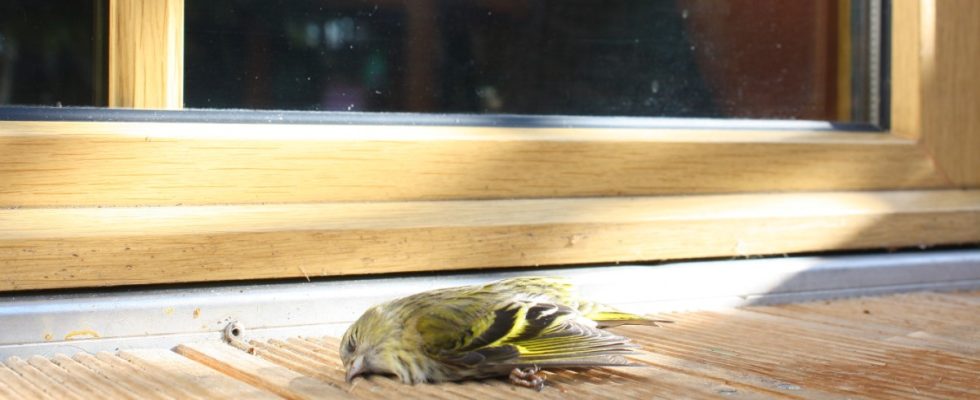Glass facades of buildings or noise barriers are deadly traps for more than 100 million birds in Germany every year. The Bavarian nature conservation association LBV wants to remedy this with its project “Making the invisible visible”. On Tuesday in Hilpoltstein, he called on the population of the Free State to identify dangerous glass facades and report them to him www.lbv.de/vogelschlag-melden Report to.
“During bird migration in autumn and spring, the risk of bird strikes increases because more birds travel longer distances,” explains LBV biologist Peter Stimmeler. The birds would not always die immediately from the collision, but would only die later from internal injuries. Anyone who observes bird strikes at an office building, bus shelter or winter garden should inform the LBV online. Using this data, the association then plans to promote targeted protective measures on high-risk buildings in Bavaria.
According to the announcement, it is not just common species found in settlements that collide with glass panes. Rare and endangered species such as kingfishers and barn swallows were also among the victims. “In addition to the loss of natural habitats, glass facades are the second most common cause of death for birds. This great danger to bird life is usually not known to the planning architectural offices or the tenants,” says Stimmeler. Because only a small proportion of the birds that collided with windows actually found themselves in front of the building. Often the dazed or dead birds are ultimately eaten by cats or martens.
Anyone can take part in the LBV project. Anyone who finds a bird should state the position or address of where it was found and the orientation of the facade to the sky. A photo of the bird found, including information about its condition, would also be helpful. If the animal has survived the collision, it is recommended to place it in a cardboard box with air holes in a quiet place at room temperature for a few hours. The bird should not be given food or liquid because otherwise it could choke, says the LBV biologist. In the case of very serious injuries, bird rescue centers, veterinary clinics or doctor’s offices could help.

